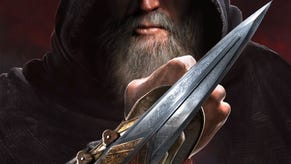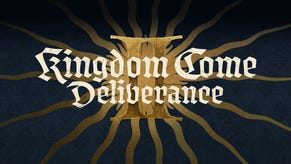Forza Horizon and the micro-transaction floodgate
Forza Horizon's single-player micro-transactions point to a monetization trend that could affect triple-A gaming at its core. You may have to accept the inevitable, says Patrick Garratt.
It isn't hard to imagine a near-future in which players expect to be able to bypass campaign difficulty spikes by coughing up a micro-payment, whether or not they had to pay up-front for the core content.
There was something odd about Forza Horizon. It's a great game, if a little standard. You roam the obligatory open world, winning races so you can enter more, stocking up your garage with Turn 10's trademark veehickles. It took me a little while to notice, but alongside every car I bought with in-game currency was an option to purchase with "tokens". When I hit the first "you don't have enough" finger-wag with some Mercedes-alike, the obvious truth dawned: I was being allowed to spend real money, in-game, to progress.
The same features were in Forza 4, apparently - I'm not a sim fan so I didn't notice - but this seemed significant to me. Forza Horizon is a single-player game: it has a distinct campaign. In-game purchases (or In-App Purchases, or IAPs) are normally reserved for multiplayer in triple-A games, but everything in Forza Horizon is buyable with cash on the solus side.
And it's not just cars. You're able to buy "popularity spikes," which last for longer if you spend more tokens and double the amount of skill points you accrue from races. Players see their virtual crowd-pleasing ability boosted for 30 minutes for a single token. You get five tokens for 400 Microsoft Points, or about £3.40. Then there's the "treasure map". This shows you the locations of smashable barriers - which bring down the cost of upgrades - and pinpoints secret races when they occur.
There's no way you can get this through play: if you want it, you have to pay for it.
None of this is news. Speaking in September, Playground Games told us there'd be a full suite of micro-transactions in Forza Horizon. What's different here is that everything you can buy is included in the campaign, and much of it could directly impact both the difficulty of the game and the time it takes to complete it. If you need a new car for a race, you can just buy the best one. You're paying to make the campaign easier. EA has been running this type of monetization across its driving games since the launch of this generation, but the idea's clearly catching on.
Assassin's Creed 3 is another example of how quickly we're moving towards a world where IAPs in "ticket" titles - games in which there's a cost to entry - are the norm. While cash purchases are strictly multiplayer-only in Connor's debut, the level of IAP monetization is eyebrow-raising. You can buy everything - every customisation option, every move, perk, streak and bonus - as soon as you put the disc into your console, regardless of level. You don't even have to play a match.
While this type of whale-courting in multiplayer is likely to cause concern as it allows players to "buy their way better," it's the implications for single-player elements of triple-A games that could be long-lasting. It isn't hard to imagine a near-future in which players expect to be able to bypass campaign difficulty spikes by coughing up a micro-payment, whether or not they had to pay up-front for the core content.
Take something like Borderlands 2, for example. Obviously, it's gun-based. Try applying the Forza Horizon model to it. You might be on a story mission which ends in a boss fight. You may need a fire weapon to beat the stage. In the current game, the chest at the entrance to the boss arena contains the appropriate equipment, and off you go. In Borderlands Horizon, the chest is a shop, and you're given the option to buy the gun for either 50,000 credits or two tokens. If you don't have enough in-game currency, you have the option to go back into the game and grind for it, or you simply hand over a few quid.
That's a pretty different game.
Opening the floodgates
The use of IAPs in triple-A games has spread over the current console generation - companies like Capcom and EA, for instance, now use them as standard in certain genres, such as fighting games and sports - but it's clear their use is accelerating, and is now spilling over from multiplayer into all aspects of the product. We're not in the realms of fantasy here: Forza Horizon's all-out approach and Mass Effect 3 with its campaign-ready gun-packs are proof.
We shouldn't be surprised. The question, really, is what's taken gaming's big players so long to push for IAPs in single-player.
Gamesbrief founder, author and analyst Nicholas Lovell explains: "People who make games become very focused on the value of content. When it costs them tens of millions of dollars to make a game, and millions of dollars to make a single piece of DLC, it's understandable. The unpalatable truth, though, is that few consumers actually want to pay for content. If they can get it for free, by borrowing or pirating, or cheaply, by trade-ins or a rental service, they will do so.
"It has taken this long for publishers and developers to realise that people don't value content: they value how that content makes them feel. The floodgates are now open."
"Contrast that with traditional product marketing. People will happily pay three times as much for a Starbucks as for coffee from a cheap cafe. We'll pay £2 for bottled water when it's free from the tap. We'll buy 'Taste the Difference' baked beans even though they are basically the same. At the extreme end, we'll buy cars and clothes and accessories that are as much about status and self-expression and personal style as they are about the cost of goods.
"This is the difference between IAP and DLC. DLC is just content, expensive to produce content that consumers want to pay as little as possible for. IAP/virtual goods are different. They are about self-expression, about status, about personal choice. They are about trading time for money, or for wanting to collect your favourite cars to show off your discerning eye, or every player in a real football team to display your tribal loyalty.
"It has taken this long for publishers and developers to realise that people don't value content: they value how that content makes them feel. The floodgates are now open."
Wedbush Morgan analyst Michael Pachter, too, believes we're looking at a trend.
"It makes too much sense to allow in-game purchases, so it's likely they will be offered more frequently going forward," he told me.
"I think many gamers prefer having unlimited options for free, but the truth is that there are some things people are willing to pay for, and there is some incremental effort to create the items. It makes sense that publishers will try to exploit the consumer and generate additional revenue."
While instances of real money transactions in the single-player portions of triple-A games are few at the moment, it's logical these options will become normal as the entire market lurches towards free-to-play. If people buy it, they'll include it. You don't have to, right? Have you heard the one about the developer that offered the choice between grinding for ten hours or spending a pound? It's got a cracking punchline.
Disclaimer
Promotional copies of the following games were used in the creation of this article:
- Mass Effect 3 (EA, PC)
- Forza Horizon (Microsoft, Xbox 360)
- Assassin's Creed 3 (Ubisoft, Xbox 360)












.jpg?width=291&height=164&fit=crop&quality=80&format=jpg&auto=webp)





